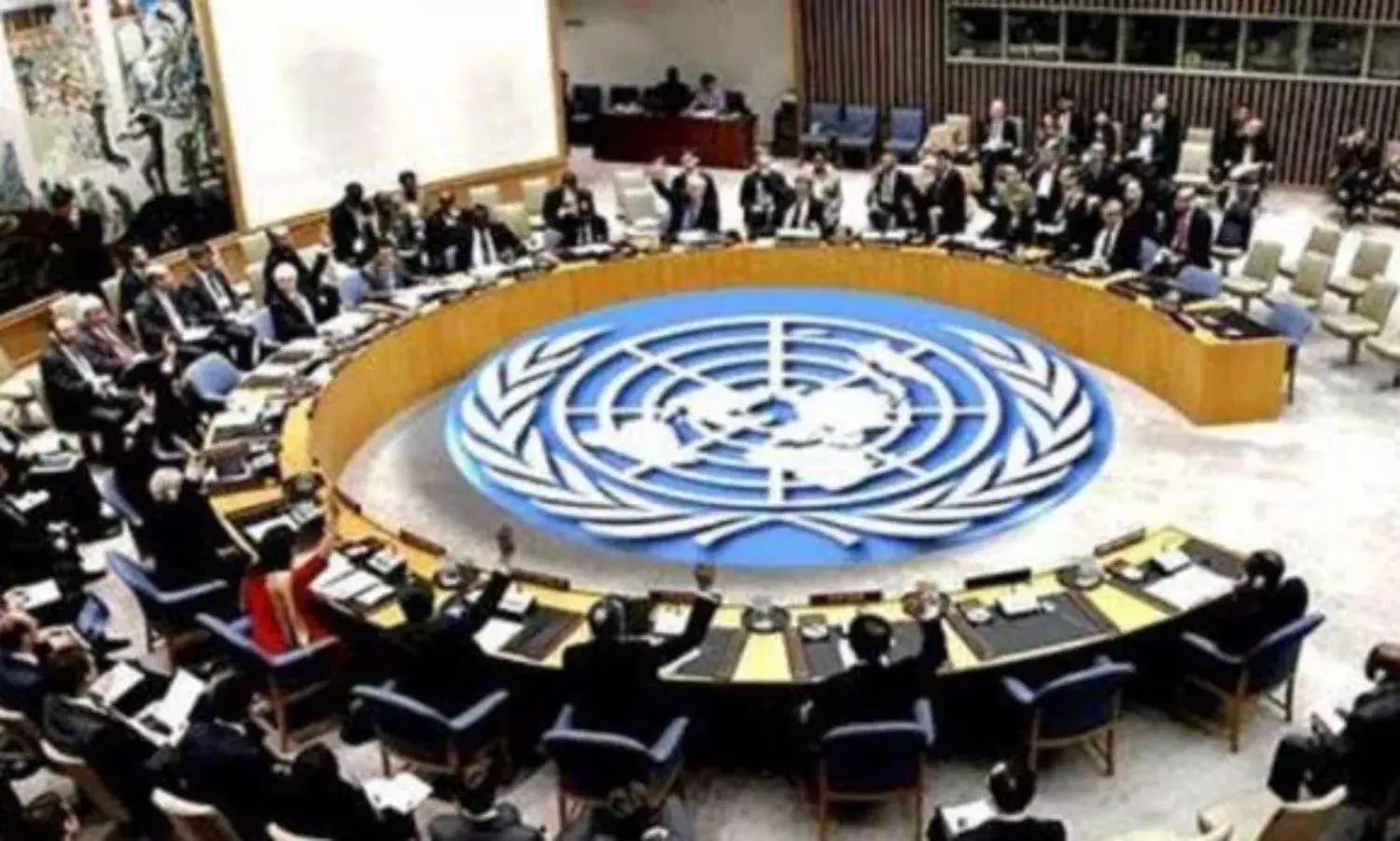
Addressing the UN general assembly by video on September 26 in the landmark 75th General Debate, Prime Minister Narendra Modi once again raised the issue of India’s entry into the Security Council as a permanent member. He posed the question “how long will India, the world’s largest democracy and home to 1.3 billion people, be kept out of the decision-making structures of the United Nations?”
He also asserted that reform in the responses, processes and the very character of the global body is the “need of the hour”.
This is interesting, because for the first time India has asked for more than just a mere expansion of the UNSC by accommodating it as a permanent member. India has asked for a greater and comprehensive reform in “the responses, processes and character of the UN”.
The US, Russia and China have unveiled their visions of an expanded UN Security Council. During his visit to New Delhi as chief guest of India’s Republic Day celebrations in 2015 President Barack Obama categorically said he supported a reformed UNSC with India as a permanent member.
But no sooner Obama returned to the US after his visit to New Delhi, the then US ambassador to the UN, Samantha Powers stated: “It is very critical that any reform proposal enjoy broad consensus among member states”. This position takes it very close to the proposal of nations under the banner Uniting for Consensus Group, which is opposed to the expansion of the UNSC by adding the G-4 of India, Germany, Japan and Brazil to it.
This group led by Canada, Italy, Colombia and Pakistan, has made a counter proposal that envisages an enlargement of the number of non-permanent members from ten to twenty. The non-permanent members would be elected by the General Assembly for a two-year term and would be eligible for immediate re-election, subject to the decision of their respective geographical groups.
The Chinese want “small and medium-sized countries to take turns to serve on the UNSC.” Russia, while not opposed to any expansion has taken the position that the powers of the members of present UNSC should remain the same with full veto powers meaning there could be two or three classes of UNSC members. The G-5 with veto powers, the G-4 permanent members without the veto, and who ever else may be elected by the General Assembly.
The creation of the United Nations to preserve world peace began in October 30, 1943 when Britain, China, Soviet Union and USA signed the Moscow Declaration on General Security. The signatories then met continuously from August to October 1944 at Dumbarton Oaks in Washington DC and fashioned a basic plan for the UN. The centerpiece of this plan was a Security Council in which the USA, USSR, Britain, China and France would be permanent members.
Fifty nations then met in San Francisco on April 25, 1945, twelve days before Germany surrendered and four months before Japan was defeated, to consider this plan. After much deliberation the differences, mostly over the veto power demanded by the then big three - US, USSR and UK, were papered over and on June 26, 1945 and the fifty nations present signed the charter and the UN formally came into being.
As an immediate response to a destructive world war, the UN reflected the reality and ethos of that age. Nothing reflected this more than the composition of the permanent members of the Security Council. Four out of the five were “white” nations. Two, China and France, were defeated nations. Two, Britain and France, were colonial powers. The other ten members of the Security Council are elected members from the various regions. These are members are without the veto and with little voice or clout.
While it can be argued that a Security Council of a smaller number of countries is desirable to make the UN effective, it must also reflect world realities and be more representative of its diversity. For instance, Africa and Latin America are not represented in the P-5. Likewise, the Islamic world does not find a place. India, which has a fifth of the world’s population, does not find a place.
The biggest economy in Europe, Germany, does not find a place. On the other hand, with two members, UK and France, Western Europe is clearly over represented. With Russia added Europe has three members. Clearly this is not a satisfactory arrangement. The UNSC does not reflect the world order or its diversity.
In the Cold War era veto powers ensured that one bloc could not override the interests of the other one. The veto thus came to be used 252 times since 1946. Since 1996 Russia has not exercised the veto even once whereas the USA has used it six times and China twice.
This presumably reflects the settled shape of the world order now? Clearly the use of the veto itself must be reviewed. One nation alone must no longer be allowed to block the consensus of the UNSC. Its time a threshold of members to collectively enforce veto be discussed.
The times have also changed. The USA is no longer the dominant economic and political power it was. The G-4 nations are all bigger economies than Russia, France and Britain. They possibly have bigger global footprints than the three. How can the power to veto be justified for these three and denied to the G-4?
In the past few years, India’s diplomacy has centered on a craving to just become a member of the UNSC. It seems a second-class membership is still feasible. The big question then is whether this is what India wants? Or do we want a greater democratization of the UNSC to reflect the status and size of the G-4?

